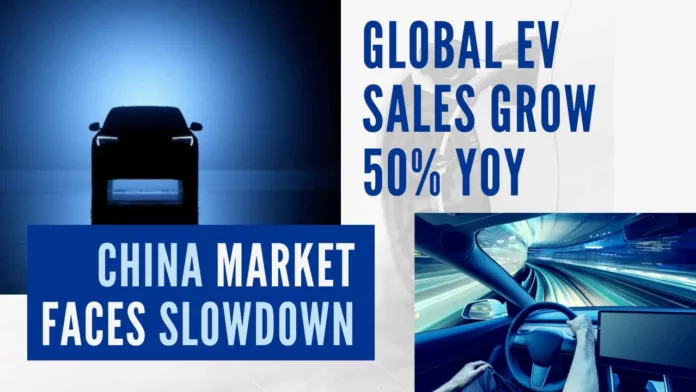
Q2 2023 global EV sales grow 50%; divergent segment trends emerge between China and worldwide markets
The global electric vehicle (EV) sales grew 50 percent (year-on-year) in the second quarter (Q2) this year, as China’s domestic market continued to dominate globally but growth failed to keep pace with other major markets, a report showed.
Chinese EV companies continued to dominate as they enjoyed scale advantages at home, allowing them to account for 56 percent of global unit sales, albeit the lowest Q2 in three years, according to Counterpoint Research.
“BYD Auto, GAC Group, and Geely Holdings were three of the world’s top five passenger EV makers last quarter, yet none are household names in the West. They sell most of their cars at home,” notes Archie Zhang, Research Analyst, China.
The trend outside of China has been biased towards the more premium executive segments, with the majority of passenger EVs sold being bigger, pricier, and often more luxurious.
“Tesla is obviously a big influence, but increasingly Hyundai Kia, Volkswagen, BMW, and Mercedes are moving the needle in premium,” said Soumen Mandal, senior analyst for automotive.
Premium EVs now need to resemble smartphones more than traditional cars to offer a similar experience to Tesla — the gold standard in EVs with its vertically integrated platform.
With modern EVs demanding up to 3-4X more advanced chips and other hardware components like cameras, sensors, power controllers, batteries, and the like, sourcing and securing supply for these components is equally critical to manufacturing EVs to unlock advanced experiences, the report noted.
“Tesla’s been showing everyone how to make a rolling computer for years and the industry is just now following suit. As computing requirements grow exponentially, so too will chip intensity per vehicle. This could have big implications on semis demand as EVs ramp over the next few years,” said Brady Wang, Associate Director, Semiconductors and Components.
[With Inputs from IANS]
PGurus is now on Telegram. Click here to join our channel and stay updated with all the latest news and views
For all the latest updates, download PGurus App.
- Another jolt to Congress in MP as Six-time MLA Ramniwas Rawat joins BJP - April 30, 2024
- Amit Shah’s doctored video case: Delhi Police summons 16 leaders from 7 states - April 30, 2024
- Ahead of third phase, PM Modi writes to BJP candidates; urges to spotlight Congress’ politics of ‘division and appeasement’ - April 30, 2024











[…] Source Link […]